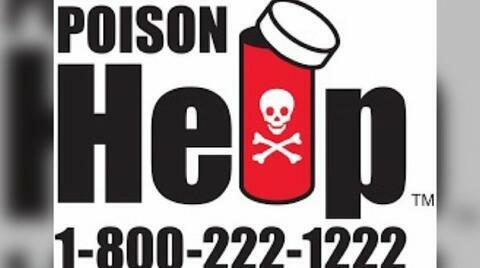Sunburn, unsafe swimming, and sweltering temperatures are not the only health concerns people may experience during summer.
At home or on vacation, indoor or outdoor, rain or shine, everyday items can quickly become dangerous.
“Mishaps are more likely to happen when there are changes in daily routines or distractions,” Diane Calello, executive and medical director of the New Jersey Poison Control Center said.
“Poison control centers see an increase in exposure to potentially dangerous items and substances during warm-weather months and holidays.”
If you’re away from home, pay attention to new surroundings. Mistakes and accidents often happen in plain sight.
Anything used in the wrong way, in the wrong amount, or by the wrong person can cause accidental poisoning. Health effects may range from minor to severe illness and death.
“The more time people spend in one place, the more likely they are to overlook potential hazards, including recreational substances like alcohol, vape products, and marijuana edibles,” Calello said.
The NJ Poison Control Center provides information and medical treatment advice to people of all ages for potentially dangerous exposures to common summer hazards — alcohol, plants, sunburn, wild mushrooms, bites and stings, insect spray, carbon monoxide, and food poisoning.
Follow these safety tips to prevent accidental exposures.
Adult Recreational Products
- Don’t leave adult recreational products, including liquid nicotine/vapes and marijuana edibles lying around. It’s safest to lock these products up to prevent children and pets from accidentally swallowing them. Mishaps involving adult recreational products can cause serious injury.
Food Poisoning:
- Raw foods can be contaminated with bacteria, viruses, and parasites which can cause severe illness. Wash hands with soap and water before and after handling raw food.
- Do not let meats, fish, poultry, and salads made with mayonnaise or egg stay outside the refrigerator for more than two hours. If it’s 90 degrees or warmer, perishable foods should be refrigerated within one hour.
Grills:
- Gas and charcoal grills can produce high levels of carbon monoxide. Prevent carbon monoxide poisoning — do not use grills indoors or in enclosed areas (garage, basement, shed, RV/camper, boat cabin).
- Keep charcoal and lighter fluids locked up and out of reach of children and pets. Not only can these items cause physical damage, they can cause serious illness and injury if swallowed.
Backyard:
- It’s never safe to pick or eat plants and mushrooms growing in the wild, even those you find in your own yard. People suffer serious illness and death each year from mushroom poisoning.
- Be on the lookout for poison ivy, oak, and sumac when spending time outdoors. When touched, the oils from these poisonous plants cause a mild to severe itchy rash – blisters, swelling, and redness. Do not burn these plants. Inhaling the smoke can cause serious lung injury.
- Fluids used in backyard torches and lamps often resemble juice containers (commonly apple juice). Accidental mishaps involving these products can lead to serious injury if swallowed.
Other Dangers:
- Drinking alcoholic beverages while taking medicine is dangerous. Dangerous interactions can occur, even if the medicine and alcohol were not ingested at the same time.
- Fireworks can also cause serious injury or poisoning if ingested by children and pets. Locking them up is the safest way to prevent a mishap. Quickly pick up fireworks left on the ground.
If you think someone came in contact with something dangerous, contact your local poison control center immediately.
Medical specialists are available to provide information, answer questions, and provide emergency support 24 hours a day.
Anyone can call for medical help – children, teens and adults. Poison control centers are a medical resource for both the public and healthcare providers.
Call the NJ Poison Control Center at 1-800-222-1222.
If someone is not breathing, hard to wake up, or having a seizure, call 9-1-1
